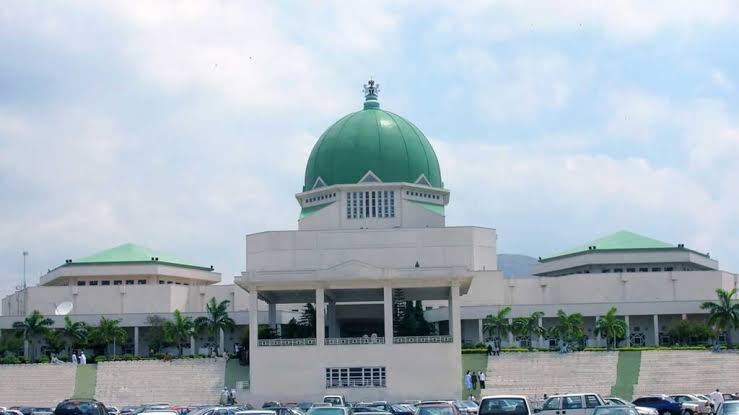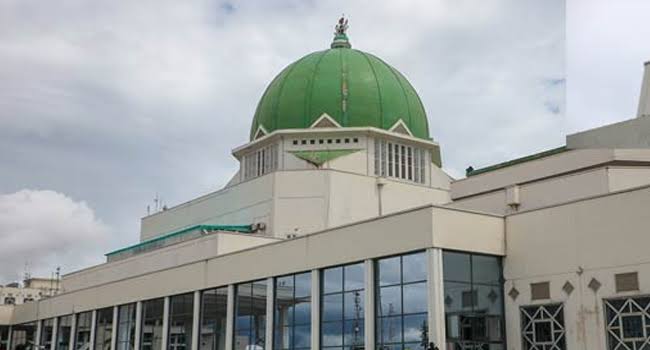The National Assembly said it will support the Federal Inland Revenue Service (FIRS) by repealing outdated tax laws and enacting new ones that are in accordance with current and global trends. Sen. Muhammed
Musa, Chairman of the Senate Committee on Finance, stated this on Saturday during the FIRS 2024 Stakeholders Engagement with the Senate and House of Representatives Finance Committees in Lagos.
Musa stated that the action was necessary to provide the country with appropriate legislation for tax collection and income production.
He stated that the process will allow for the amendment of tax legislation that existed prior to the country’s independence.

The congressman stated, “I am confident that the Executive will present the bill when we return from recess, allowing us to revise, repeal, and re-enact the Acts that will suit the current trend.
“In terms of innovation, cryptocurrency, for example, has been one of the most popular methods to make money, but there is no regulation in Nigeria to govern it.
“With what FIRS and legislators are doing, we are collaborating to create legislation that would provide Nigeria with the best opportunity to increase revenue to address its difficulties in human development and infrastructure, among other things.
“We are working together to ensure that the FIRS is fully equipped to maximise revenue collection, thereby providing the necessary resources for National development and public welfare in the country.
According to him, the FIRS, as the foundation of revenue production, plays a critical role in the nation’s financial and long-term viability.To respond to the nation’s dynamic economic demands, he stated that agency must have a communal shared responsibility.
The congressman remembered that in recent years, particularly under the leadership of the FIRS Executive Chairman, Dr Zacch Adedeji, the revenue service had achieved tremendous progress in improving tax administration and compliance, as well as repositioning the agency.
“As the world and economy evolve, and the country’s landscape changes, there is an urgent need to assess, reassess, realign, and reposition the FIRS to meet new realities.”
“This is not only about best practices, but also fostering an environment where transparency, accountability, and innovation are at the forefront of the transformation efforts,” he said.
Dr. Zacch Adedeji, Executive Chairman of FIRS, stated in his speech that the Federal Government would implement new tax legislation by September, overhauling the entire process of the nation’s revenue administration.
Adedeji added that the new law would, among other things, harmonise and simplify the country’s tax rules, as well as provide better service to support President Bola Tinubu’s economic agenda.
“For example, stamp duty has a tax law from 1939, when there was no internet, connectivity, or local government.”
“Part of the reason President Bola Tinubu established the Tax and Fiscal Reform Committee is to address these issues by September.
The FIRS chairman also underlined the importance of regulating cryptocurrencies in Nigeria, given there is currently no such law. “While we cannot ignore cryptocurrency because there is now no law in Nigeria regulating it, there is a need for legislation that governs this type of transaction.
“For example, stamp duty has a tax law from 1939, when there was no internet, connectivity, or local government.” “Part of the reason President Bola Tinubu established the Tax and Fiscal Reform Committee is to address these issues by September. The FIRS chairman also underlined the importance of regulating cryptocurrencies in Nigeria, given there is currently no such law. “While we cannot ignore cryptocurrency because there is no law in Nigeria currently regulating it, there is a need for a regulation that controls this line of transaction.
“This is what applies in other countries around the world.” “When there are system innovations, you must plan to regulate them so that they do not harm Nigeria’s economic development,” he stated.
Adedeji praised the National Assembly for its long-standing support of the revenue service, which has enabled it to meet its targets and disperse wealth, noting that innovations by both houses have greatly aided the federal government.
According to him, the FIRS is on the approach of meeting the N19.4 trillion target set by the National Assembly at the beginning of the year. He stated that the purpose of the engagement was to strengthen relationships with the legislature and inform them of the impact and efficacy of the agency’s different legislative initiatives.
In Essence
The existing tax laws in Nigeria, many of which predate the country’s independence, are outdated and do not reflect the current economic realities, particularly in the digital and globalized economy.
For example, tax laws that were crafted in an era without internet connectivity are ill-equipped to handle modern issues such as e-commerce, digital transactions, and cryptocurrency. Revising these laws will help the country tap into new revenue streams that are currently under-regulated or unregulated.
A modernized tax system that is well-aligned with current economic activities can significantly enhance revenue collection.
With Nigeria facing substantial challenges in human development, infrastructure, and economic diversification, increasing revenue is critical. The legislative support to the FIRS in this regard is essential for creating a more robust and efficient tax system, which can provide the government with the necessary resources to address these challenges.

















